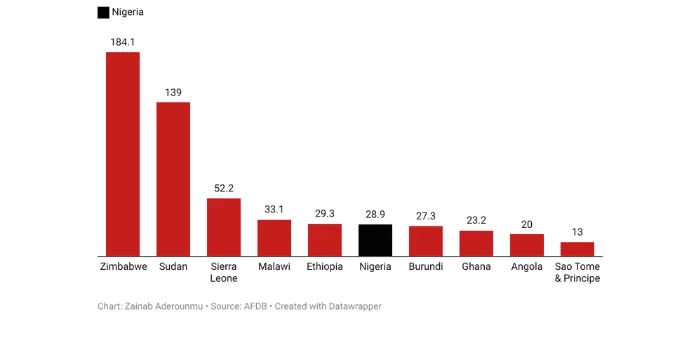Recent reports indicate a significant surge in inflation rates in Nigeria, raising concerns among policymakers and consumers alike. As of September 2023, Nigeria’s inflation rate climbed to approximately 26.72%, marking a sharp increase from previous months. This rise is attributed to several factors, including ongoing economic challenges, fluctuating food prices, and the impacts of recent fuel subsidy removals.
Food prices have been particularly affected, contributing to a staggering increase in the food inflation rate, which now stands at about 31.55%. The rise in food costs is linked to supply chain disruptions, adverse weather conditions, and high transportation costs, all exacerbated by the global economic landscape.
Economic analysts warn that the continued increase in inflation could hinder consumer spending and slow economic growth. The Central Bank of Nigeria has expressed concerns about the potential long-term effects of these inflationary pressures and is considering further monetary policy adjustments to stabilize the economy.
In response to the growing crisis, the government is exploring various measures to alleviate the burden on citizens, including potential subsidies for essential goods and targeted interventions to support vulnerable populations.
As Nigeria navigates these challenging economic conditions, the focus remains on implementing effective strategies to combat inflation and restore stability. Stakeholders, including government officials and economic experts, are closely monitoring the situation to ensure appropriate responses to safeguard the economy and support the livelihoods of Nigerians.
For further details on the current inflation situation in Nigeria and its implications, you can follow the latest updates from local news sources.























